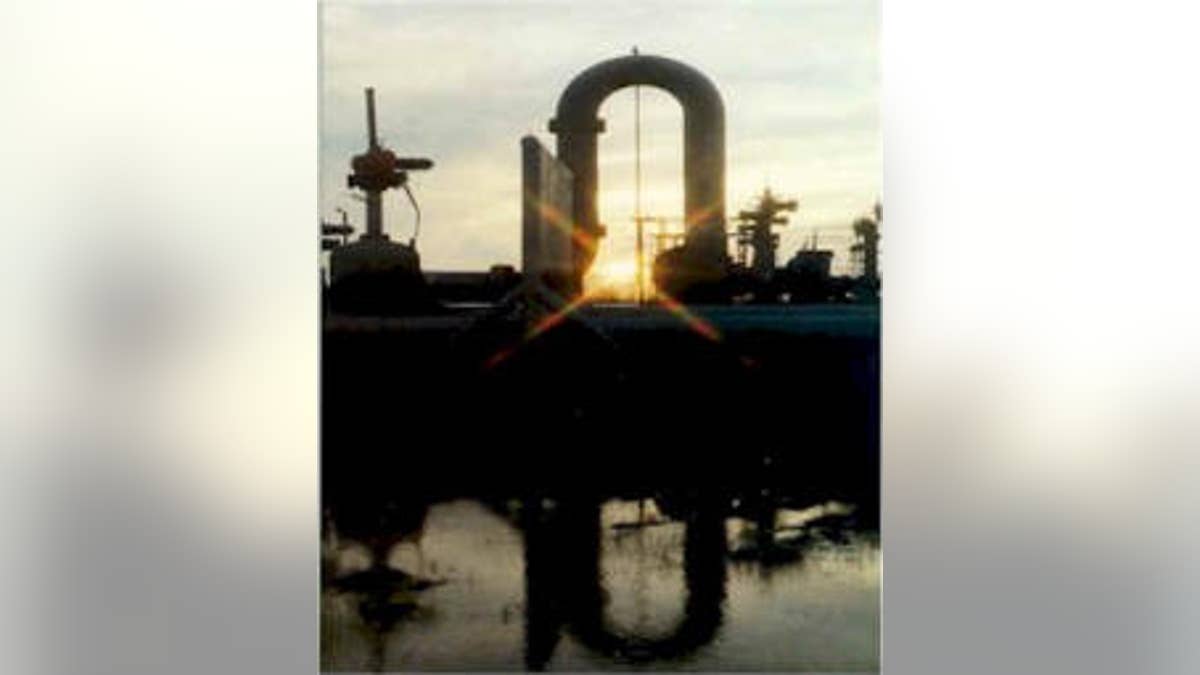
Strategic Petroleum Reserve (Department of Energy)
The U.S. is releasing 30 million barrels of oil from the Strategic Petroleum Reserve as part of an international effort to make up for disruption in Libya's oil production, a decision aimed at increasing supply ahead of the nation's summer driving season, Obama administration officials said Thursday.
"We're heading into a period in which demand for oil tends to be at its highest," a senior administration official told reporters. "This release is intended to address that increasing demand."
The move drew immediate condemnation from Republicans and business interests opposed to tapping the emergency reserve for anything other than a critical cut-off of oil.
"The Strategic Petroleum Reserve was designed for energy emergencies, not political convenience. Releasing our reserves to calm the market is emblematic of an administration whose energy policy is irrational and counter-productive," said Rep. Fred Upton, R-Mich., head of the House Energy and Commerce Committee.
"The Obama administration's decision to release oil from the Strategic Petroleum Reserve is ill-advised and not the signal the markets need," said Karen Harbert, president and CEO of the U.S. Chamber of Commerce's Energy Institute.
"Our reserve is intended to address true emergencies, not politically inconvenient high prices. ... With U.S. crude oil production expected to decrease by 90 million barrels in the next year, the administration should instead focus on increasing domestic production to improve our energy security, reduce our dependence on foreign oil and create thousands of jobs," she said in a statement.
Thursday's announcement coincides with a decision by the International Energy Agency to put in another 30 million barrels on the market from other nations. The IEA said that the percentage distribution of the combined 60 million gallons is based on the proportionate share of consumption. As a result, the U.S. is releasing 50 percent of the total while European countries release about 30 percent and Asian countries provide the remaining 20 percent.
U.S. Energy Secretary Steven Chu said the SPR is currently at a record 727 million barrels in storage, its capacity. He said the situation in Libya -- which the U.S. began bombing in March, but which has been under NATO control since May -- has caused a loss of roughly 1.5 million barrels of oil per day -- particularly light, sweet crude -- from global markets.
"We are taking this action in response to the ongoing loss of crude oil due to supply disruptions in Libya and other countries and their impact on the global economic recovery," Chu said in a statement. "As we move forward, we will continue to monitor the situation and stand ready to take additional steps if necessary."
The IEA, a 28-member nation organization created to create a collective response to major disruptions in oil supply, said the coming release of oil inventory is the third time the agency has taken such action.
"I expect this action will contribute to well-supplied markets and to ensuring a soft landing for the world economy," said Executive Director Nobuo Tanaka.
The IEA also said that even though the crisis in Libya began in February, tightening of supply by OPEC and recent European refinery outages linked to "seasonal maintenance work" along with summer demand in the Northern Hemisphere "represents an imminent risk."
The senior administration official said the SPR is "precisely" for relieving pressure on oil supplies, even though Saudi Arabia and other oil producing countries ramp up production to make up for lost Libyan output. The aide noted that Libya's war has reduced global oil supplies by 140 million barrels whereas Hurricane Katrina caused a mere 38-million barrel disruption.
The U.S. Strategic Petroleum Reserve, created in 1973-74 after the Arab oil shock, has sold oil reserves three times -- after Hurricane Katrina in 2005, after the Persian Gulf War in 1991 and as a deficit reduction measure in 1996-1997.
It has also been tapped several times for short-term loans to oil companies suffering disruptions from natural disasters, refinery problems and accidents.
But the release immediately caused unexpected turmoil on Wall Street. Oil prices fell 4 percent almost immediately and energy stocks like Exxon Mobil Corp. sharply lower. The Dow Jones industrial average also plummeted in Thursday trading.
Oil had already been falling from $115 per barrel a month ago to $94 per barrel this week. The administration official would not discuss the price level the White House would like to see, saying, "prices will be what they are."
Rep. Ed Markey, D-Mass., who had introduced legislation earlier this year ordering the administration to pull 30 million barrels out of the SPR said the release will have "a huge effect on the everyday lives of American families."
"With our economy teetering on the brink of a double-dip recession, and American families still struggling during peak driving season, this is the one tool America has at her disposal to immediately help drive down prices at the pump," said Markey, ranking member of the House Natural Resources Committee.












































